The Institute of Urban Environment, Chinese Academy of Sciences has developed a new method of surface-enhanced Raman spectroscopy to detect protein membrane pollution Some progress has been made in detection research, and related results have been published in the American Chemical Society Journal Analytical Chemistry (Li Cui, Meng Yao, Bin Ren, and Kai-Song Zhang *, Sensitive and Versatile Detection of the Fouling Process and Fouling Propensity of Proteins on Polyvinylidene Fluoride Membranes via Surface-Enhanced Raman Spectroscopy. Anal Chem, 2011, 83, 1709–1716). Membrane technologies such as microfiltration, ultrafiltration, nanofiltration, and reverse osmosis are becoming more and more widely used. However, membrane fouling during the operation of the membrane severely restricts the development of the technology, which not only causes membrane flux and separation The performance is degraded, and the cleaning and replacement of the membrane after pollution also greatly increase the operating cost. The development of a detection method that enables early diagnosis of membrane fouling, process tracking, and the identification of membrane fouling capabilities of different substances is essential to understanding the membrane fouling process and controlling and slowing the occurrence of membrane fouling. To achieve this goal, the research group developed a new membrane contamination detection technology based on surface enhanced Raman spectroscopy. By optimizing the aggregation state, distribution and amount of SERS active silver sol on the surface of the filter membrane, and by means of line focusing and statistical methods, highly sensitive detection, signal uniformity and stability of membrane pollutants on the surface of the filter membrane are achieved. On this basis, SERS early diagnosis of membrane fouling, membrane fouling process tracking, and the use of Raman imaging (Raman mapping) and silver staining (Ag-staining) to visualize membrane blocking areas. In addition, by comparing the difference in the relative intensity of SERS before and after filtration of different proteins, the membrane fouling ability of different proteins is easily judged. Compared with fluorescence-based technologies, it has a narrow SERS peak and uses the same excitation light and power. At the same time, the advantages of obtaining SERS spectra of multiple substances make it possible to quickly identify the membrane fouling ability of different substances in a simple way. This study not only established the SERS method for studying membrane fouling, but also demonstrated the multiple functions that allow it to be expanded to more and more complex membrane fouling systems, in-depth understanding of the interaction between pollutants and filter membranes, and more importantly , To provide more clues for the development of membrane pollution control methods and the development of anti-fouling filter membranes. This work was supported by the National Natural Science Foundation of China, the Natural Science Foundation of Fujian Province and the Knowledge Innovation Project of the Chinese Academy of Sciences.
Rectangle Fire Pit Burner
Traditional style low-rise table-top Fire Pit pan. Its size (980mm by 370 mm) and weight make this fire pit bowl easily transportable for camping, fishing or a simple barbecue. Because of its compact size, it's also convenient for use on balconies of small terraces.The fire pit pans & burners are made of 304 stainless steel. Designed to withstand extreme heat & harsh weather without damage or rust. Creates a brilliant, uniform flame. Add fire glass or lava rocks to match your decor to complete the look.
|
Name
|
Stainless Steel Propane Fire Pit Burner
|
|
Material
|
Stainless steel
|
|
Size
|
800*800mm
|
|
Steel thickness
|
2mm
|
|
Weight
|
3.5KG
|
|
Packing
|
carton
|
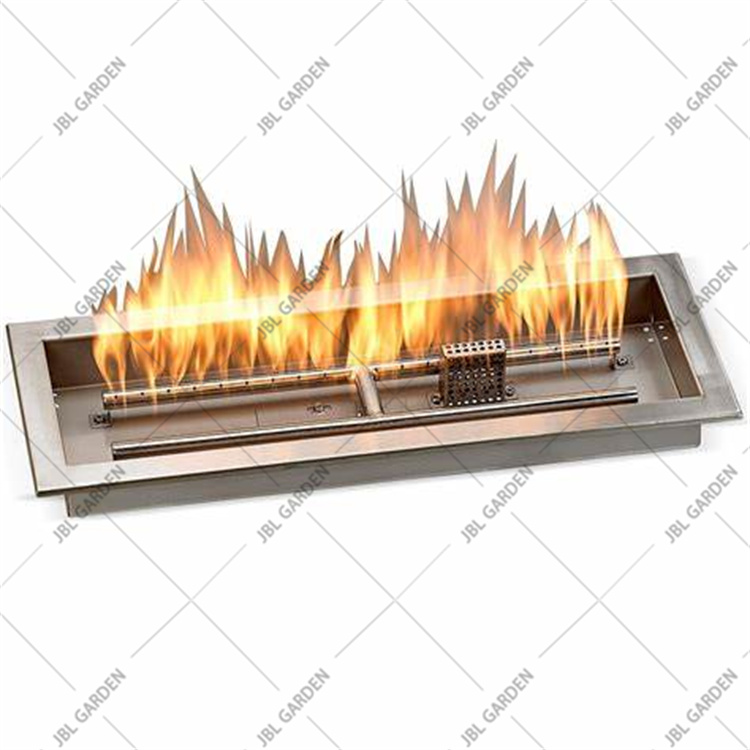
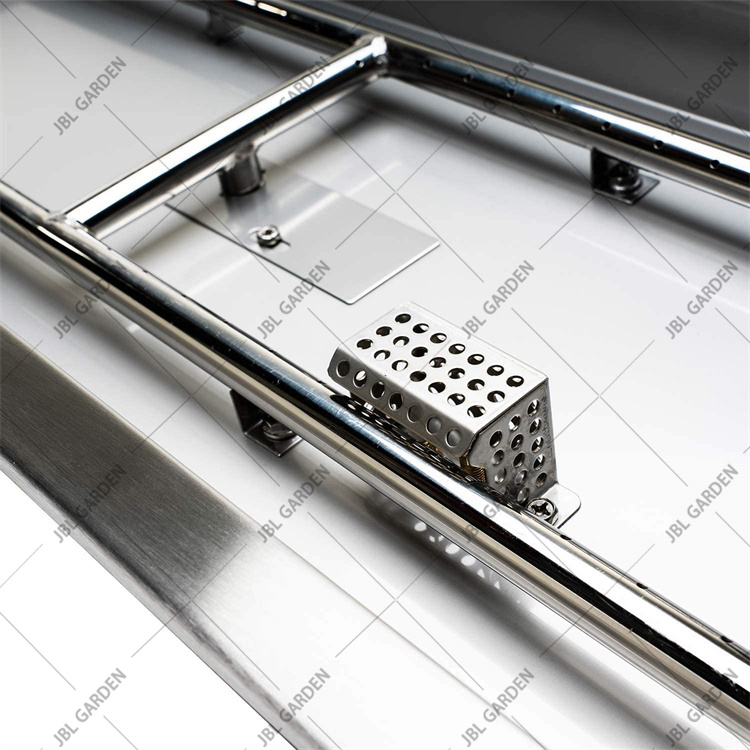
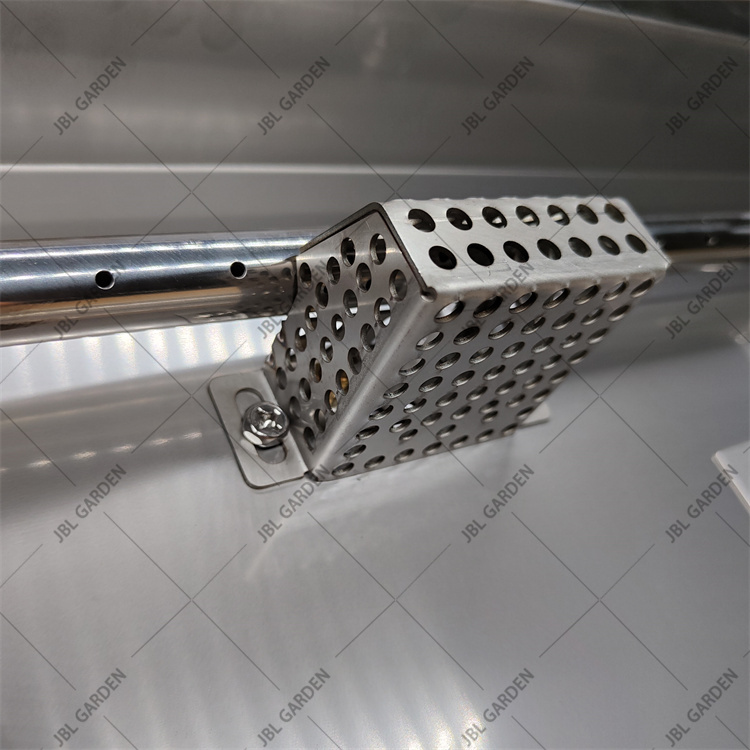
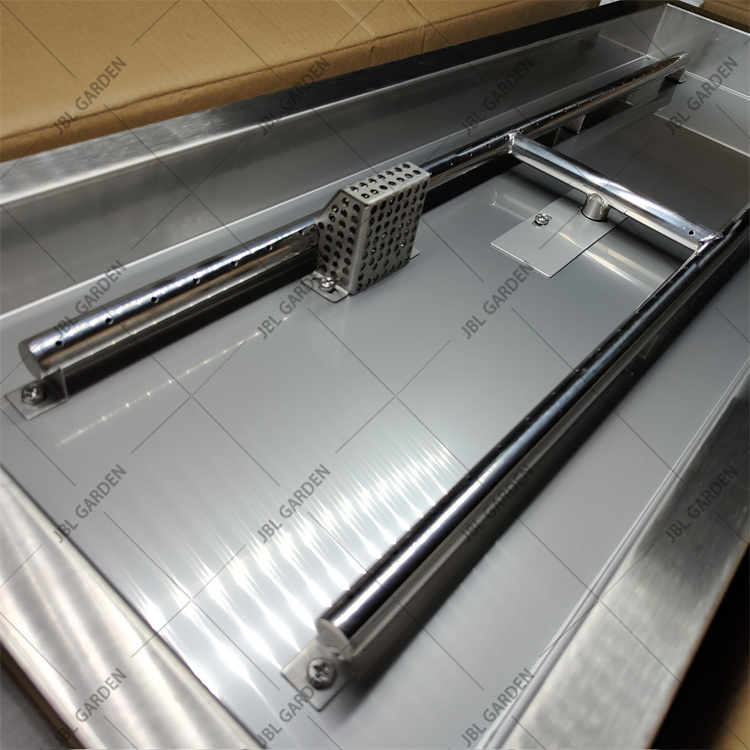
Packing
Packing will by carton and pallet
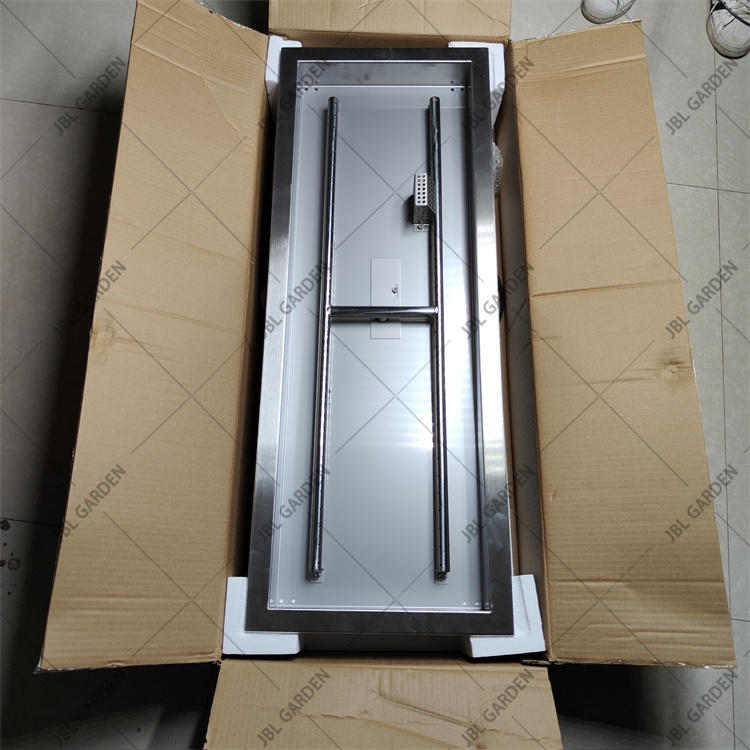
Rectangle Fire Pit Burner,Fire Pit Insert Rectangle,Rectangle Log Burner,Rectangle Burner
Henan Jinbailai Industrial Co.,Ltd , https://www.jblbbqgrills.com




